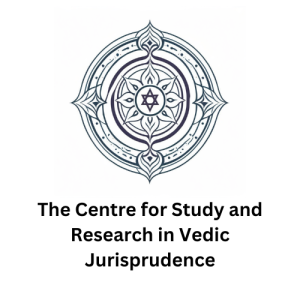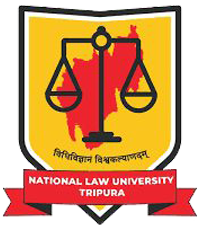The Centre for Study and Research in Vedic Jurisprudence
- Home
- |
- The Centre for Study...
- Research Centre
- Centre of Excellence for Artificial Intelligence (AI) and Data Governance (DG)
- Kautilya Society
- The Centre for Study and Research in Vedic Jurisprudence
- Centre for Environment Law and Climate Change
- Centre for Tribal Studies and Social Justice
- Centre for North East Studies and Policy Research
- Centre for Alternative Dispute Resolution
- Centre for Access to Justice and Legal Aid
- The Centre For Disability Rights and Studies
- Tripura Dialogue Forum (TDF)
- Centre for Public Health Law and Policy
- Centre for Criminal Justice and Human Right
The Centre for Study and Research in Vedic Jurisprudence

The rich tapestry of ancient Indian jurisprudence, particularly the Vedic traditions, offers profound insights into law, ethics, and governance that remain relevant today. Despite the influence of Western legal systems on contemporary Indian law, the ancient legal traditions of India continue to provide a deep reservoir of knowledge that can contribute to modern jurisprudence. Recognizing this, the National Law University, Tripura, proposes the establishment of a “Centre for Ancient and Vedic Jurisprudence” (CAVJ) to explore, research, and revive these ancient legal traditions in the context of modern legal education.
VISION
Preserving Heritage: Ancient Indian jurisprudence, particularly the Vedic texts, Smritis, and Dharmashastra, form the cornerstone of India’s legal heritage. The Centre aims to preserve, study, and disseminate this knowledge to ensure it is not lost to future generations.
Relevance to Modern Law: Ancient Indian legal texts offer insights into concepts of justice, duty, governance, and ethics that are universal and timeless. By integrating these principles with contemporary legal thought, the Centre can contribute to the development of a more holistic legal framework.
Cultural and Regional Significance: Tripura, with its unique cultural and historical background, is an ideal location for such a Centre. It would serve as a bridge between the ancient legal traditions and the modern legal system, fostering a deeper understanding of India’s legal and cultural history.
MANDATE
Research and Scholarship: To conduct in-depth research on ancient and Vedic jurisprudence, exploring its principles, application, and relevance in contemporary legal contexts.
Curriculum Development: To develop specialized courses, workshops, and seminars on ancient Indian law and jurisprudence, integrating them into the university’s curriculum to educate students on this vital aspect of legal history.
Publication and Documentation: To publish research papers, translations of ancient legal texts, and commentaries, thereby creating a comprehensive body of knowledge accessible to scholars and the public.
Capacity Building: To train students, legal professionals, and researchers in the study and application of ancient legal principles, promoting a greater understanding of India’s legal heritage.
Interdisciplinary Collaboration: To foster collaboration with scholars in fields such as history, philosophy, religious studies, and linguistics to create a multidisciplinary approach to the study of ancient jurisprudence.

